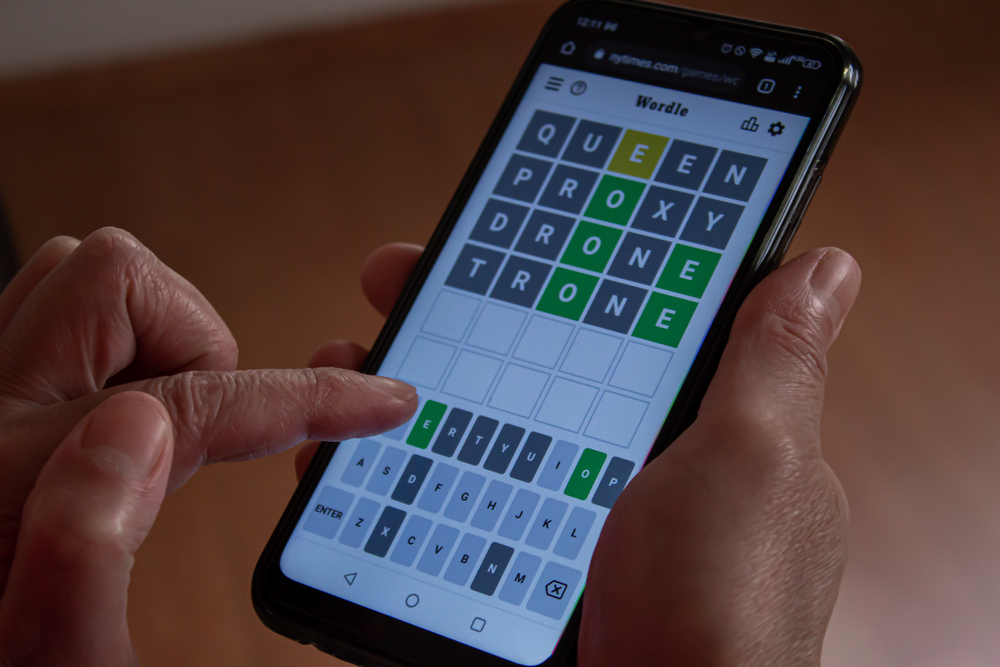Can Shoplifting Be Activism?

Our culture is both fascinated with and repelled by shoplifting. On the one hand, we scoff at the cast of archetypal shoplifters; the materialistic teenage girl, the shifty hoodie-wearing teenager, the bored housewife looking for a thrill. In whatever form they take, shoplifters are considered defectors from the American Dream, which loudly proclaims the value of honest backbreaking labor (though it doesn’t necessarily decry the obsession with material wealth that purportedly rewards such work). At the same time, theft is glamorized on the big screen. Movies like The Bling Ring, Ocean’s 8, and Hustlers plumb the moral implications of theft while wrapping it up in a glamour veneer.
Our cultural fascination has bled into a scientific quest to unmask the motivations of shoplifters. What kind of person would do something as seemingly irrational (in that it goes against the logic of working hard for material wealth) and potentially dangerous as shoplift, we want to know, and why? Women are generally thought to shoplift more than men, because women are thought to shop more in general, but a 2008 study conducted by The American Journal of Psychiatry demonstrated that men actually are more likely to shoplift than women. A recent paper, “The Psychology of Shoplifting: Development of a New Typology for Repeated Shoplifting,” which was published in the International Journal of Offender Therapy and Comparative Criminology in 2019, makes a more rigorous effort at pinning this elusive figure down.
The researchers conducted a survey of around two hundred self-professed kleptomaniacs, which measured their shoplifting behavior (the strategies they use to avoid detection and the objects they gravitate towards), the emotions they experienced before and after shoplifting, their mental health, level of impulsiveness, and history of trauma. From this data, the researchers determined that there are six kinds of shoplifters, each with a specific personality profile and motivation for theft. The most common type, making up around 25% of the participants, is the Lost-Reactive type, who are “characterized by generally law-abiding behavior, stability in mental health, and the preponderance of lifetime loss and trauma.” These types may be shoplifting out of a subconsciously desire to compensate for a past loss or trauma, the researchers suggest. The Impulsive type is generally financially well-off, and tends to steal only when the opportunity presents itself. They were found to feel the least shameful about their actions. The Depressed type shoplifts to alleviate the pain or numbness of mental illness, possessing both the highest amount of shame and the strongest moral compass of the six types. In a sharp contrast to that, the Hobbyist, views theft as not only a fun activity but a component of their identity. According to the study, “These individuals had a high orientation to traditional ethics and yet did not experience distress, guilt, or shame, indicating that they may see themselves as above, outside, or exempt from the law,” and also receive the highest enjoyment from stealing of the six types. The last two types, Addictive-Compulsive (the thrill-seekers) and the Economically Disadvantaged (those who steal to survive, and almost always stole on a more regular basis than any of the other types), tended to feel low shame.
But there is a seventh type of shoplifter, unmentioned in the study and yet present in the spaces between each profile. This type professes a unique motivation for shoplifting; political activism. The activist borrows elements from nearly all the categories, never fitting fully into any single group. They are hobbyists, in that they view stealing as fun and commiserate with other shoplifters in an online community, much in the same way that a hobbyist who builds miniature trains might do. Many claim to enjoy the thrill of the steal, but many more cite economic disadvantage as their key motivation. But the characteristic that most sharply distinguishes them from the other categories is that their shoplifting is rooted in feminist and anti-capitalist theory, which could perhaps point to a strong rather than weak ethical compass.
These political shoplifters are surprisingly visible online. Journalist Tasbeeh Herwees interviewed teenage girls who participated in “Liftblr,” an online community of shoplifters who swap tips and share pictures of their hauls on Tumblr. A study on the Liftblr community conducted by Northumbria University, identified a cluster of three themes that made up the entire body of shoplifting blogs; tips and advice (how to find the blind spots of security cameras, what kind of purses can hide items the most inconspicuously), resistance and activism (which includes social justice, feminist theory, and anticapitalist theory), and storytelling/community building (personal stories about shoplifting that reify a sense of a shared identity between members, as well as jokes about the Liftblr community and general humor related to shoplifting).
Not all members of Liftblr are explicitly political, but the Northumbria study found that social justice was a central focus on the blogs of of the most vocal members of the community. One girl, who went by the handle PrincessKlepto, wrote to Herwees that,
“Being a teen girl is hard—you have to be skinny, attractive, put together, well dressed, etc. Society teaches girls through media and the beauty industry that they need to be perfect. I’m sick of handing my money over to corporations that profit on this bullshit…so if i have to put up with this kind of stuff, i’m [sic] certainly not going to pay for it.”
Like the Lost-Reactive type, these teens cite trauma (the broad trauma of living in a capitalist society, the more specific trauma of being a teenage girl) as a motivation for theft, though the trauma described in the Lost-Reactive profile seems more of an unconscious than conscious motivator. Another lifter, pretty-little-lift, wrote, “I 100% support women stealing beauty products instead of throwing every spare penny she has away chasing after an impossible pipedream sold to her since the moment she was born.” Some users take it farther than just makeup. Tumblr user ptsdhamlet posted in 2016,
“I’m not going to get too deep into the Shoplifting Discourse but I will say that ‘stealing for survival’ encompasses a lot more than just food. You could be stealing makeup (which is already always absurdly expensive) so strangers read you as a woman, or stealing a toy so your kid doesn’t feel like she’s a bad person because Santa didn’t bring her anything, or stealing tampons or toilet paper because everybody deserves basic hygiene, or stealing nice clothes for a job interview, or stealing school supplies so you can study, or stealing any other number of things that are truly necessary but you won’t immediately die if you don’t get them.”
So is it possible for shoplifting to be activism, and if so, how effective a form of protest is it? In her 2012 book The Steal: A Cultural History of Shoplifting, Rachel Shteir describes the work of journalist James Trimarco, who researches the subject of shoplifting as activism. His work isn’t focused on determining the moral implications of stealing, but the metric by which we should judge the validity of shoplifting as political activism. He asks, “Does [shoplifting] keep a sense of direct action alive? Does it develop skills that can come in handy in other forms of political work? Does it provide a kind of ‘euphoria of disobedience’ against private property that’s not easily found elsewhere?”
David Graeber, a cultural anthropologist who teaches at the London School of Economics, was also interviewed by Shteir for her book. He told her than when shoplifting,
“One doesn’t destroy (or steal) people’s personal property, in the sense of things they own to use themselves. One doesn’t deprive people of their means of livelihood. Almost all anarchists I know don’t feel it’s morally wrong to steal from a large corporate store, but wouldn’t think of stealing from a mom and pop grocer […] It’s really hard to imagine a scenario where we can overcome capitalism without breaking or taking anything that the law says doesn’t belong to us. So then it comes down to a question of tactics: When is it helpful and when isn’t it? […] Who gets to say? Is there some central authority that can dictate what are appropriate revolutionary tactics?”
Both Triamarco and Graeber bring up interesting points. Shoplifting is arguably the most accessible form of civil disobedience. As superstores proliferate, it becomes easier and easier to swipe items from big businesses. But when we consider whether or not it provides the euphoria of disobedience or develops the tools needed for protest, the issue becomes more complicated. As demonstrated in the 2019 study, shoplifters are still a heterogeneous group, whatever their professed motivations. They may not even consider their actions political at all. Furthermore, not everyone who shoplifts actively develops a revolutionary toolkit or participates in community-building, as the Impulsive type attests to.
There are few forms of protest that are as difficult to interpret as protest, that don’t explicitly make themselves known as civil disobedience. Shoplifting, uniquely, is inherently silent rather than overtly loud and disruptive. Does that mean it only becomes protest when we think of it as protest, and the action itself is inherently neutral? Or do such actions carry political significance regardless of intent? The Economically Disadvantaged shoplifter, for example, might not think about their actions as political, but one could argue that their need to shoplift arises from and is a direct response to political or economic marginalization, so the action is political whether or not they think of it that way or not.
At the same time, some researchers have argued that the act of shoplifting is inherently harmful, regardless of professed motivation. A 2008 study conducted on over 43,000 people demonstrated that those who shoplifted were more likely to be diagnosed with mental illness, and tended to score lower on social, mental, and emotional health surveys. The same study showed that high school students who admitted to shoplifted had lower grades, higher drug and alcohol use, and more feelings of sadness and hopelessness when compared with those who hadn’t shoplifted. However, one could argue that all of this data doesn’t necessarily reveal a cause and effect relationship. In other words, it doesn’t tell us if shoplifting is a cause or symptom of emotional and mental problems, and how factors like economic disadvantage shape these lived experiences. A much smaller 2012 study conducted on over 100 teenagers found that nearly 25% of those diagnosed with kleptomania reported attempting suicide at least once. 93% of those cases reported that the attempt was “directly or indirectly due to their kleptomania symptoms (e.g., shame over the behavior; legal or personal problems resulting from shoplifting).” This study comes much closer to establishing that link, but the sample size is relatively small, and once again, the study doesn’t address the social and economic forces at the root of many shoplifters’ trauma.
Thinkers like Graebar bring up the difficulty in labeling an act like shoplifting, which may spring from any number of motivations, as inherently anticapitalist or revolutionary. It’s worthwhile to reconsider the various forms civil disobedience can take, and what stereotypes about shoplifting impact our cultural response to it.




